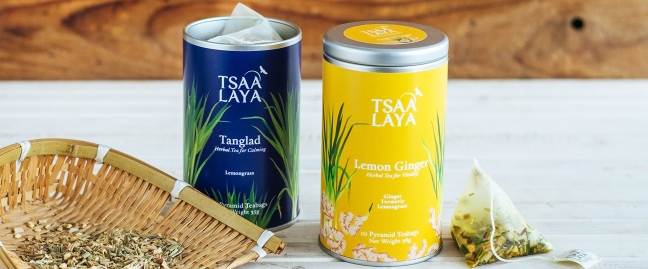After having spent over a month here in Manila, we have not only met inspiring people like Edwin from True Manila or support organizations like Impact Hub. We have also had the chance to meet a bunch of driven social entrepreneurs changing lives on a daily basis here in the Philippines. The social enterprises that we have been fortunate enough to meet come in all shapes and forms. However, the one thing they all have in common is a mindset that it is possible to empower people and make a difference through sustainable business practices. Here are some of the social enterprises that we have had the pleasure to visit during our research.
Human Nature

Human nature is one of the largest social enterprises in the Philippines, and they offer a wide variety of beauty and personal care products that are all organic and made with ingredients sourced locally. The mission of Human Nature is to be “Pro-Philippines, Pro-Poor, and Pro-Environment.” They work to employ low-income individuals from marginalized communities to develop and produce all of their natural products. They are not only employing these people but also aiding the rural villages through training and development to become self-sustaining communities which will be capable of producing their ingredients to the highest standards.
Citihub

Citihub is a social enterprise aiming to reduce the cost of living for low-income workers residing outside Manila by providing safe, clean, and affordable housing for as low as P1,700/month (around 25€) at key areas in Metro Manila. They are not only providing affordable housing, but they are also very sustainable and eco-friendly since all of their constructions are made of old shipping containers. Today, they have three locations around central Manila, all of which can house up to 250 people.
Good Food Community

Good Food Community aims to create a more sustainable society that nourishes everyone through a system known as Community Shared Agriculture (CSA). This system connects producer and consumers within the value chain of food production more closer to each other through subscription to the harvest of a particular farm or community. Using the CSA model from Good Food Community, you can help marginalized farming villages with the security of a stable demand despite external risks. In return, you will receive a food basket every week stacked with fresh and organic harvest for that period.
Messy Bessy

Messy Bessy is manufacturing and selling natural, chemical-free household cleaning products, as well as personal care products made by made by at-risk youth coming from disadvantaged communities. Apart from selling products Messy Bessy is also running the project H.O.U.S.E (Helping Ourselves through Sustainable Enterprises). This project is dedicated to providing these at-risk youth (formerly abused, trafficked or impoverished children) with work-training, mentorship, value formation classes, personal development and self-sustained education through high school or college diplomas. So, the young adults involved in the manufacturing of their products are also students of the H.O.U.S.E project.
Their branding is simple: “We clean. We green. We educate.”
Tsaa Laya

Tsaa Laya is a social enterprise tapping into the indigenous tea culture of the Philippines by combining different aromatic herbs with tea leaves, spices, and fruits into unique mixtures. In the process of making the tea, they are benefitting Filipino communities where livelihood is minimal by employing them to produce the tea. However, the aim is not only to employ these people but instead teach and transform them into business partners. By allowing them to create and set up their own businesses and work together with us, we will not only provide income to the communities but also give them a measure of dignity.
These are for us perfect examples of how businesses can produce, manufacture and sell products or services just like any regular business but still have a purpose that goes beyond making a profit. If you are interested to find out more about different social enterprises here you can visit Choose Social Ph, a platform to discover and explore more about the social enterprise scene in the Philippines.

Hi Axel and Jonathan ~
Ann here. I’m currently working on an assignment about Social Enterprise that’s when I came across this post. I hope you can recommend an activity or exposure for college professors involving Social Enterprise. I’m torn between visiting a social entrepreneurship (community) or inviting social entrepreneurs for a talk/seminar which will be attended by faculty members.
I would really appreciate your insights.
More powers to you both.
LikeLike